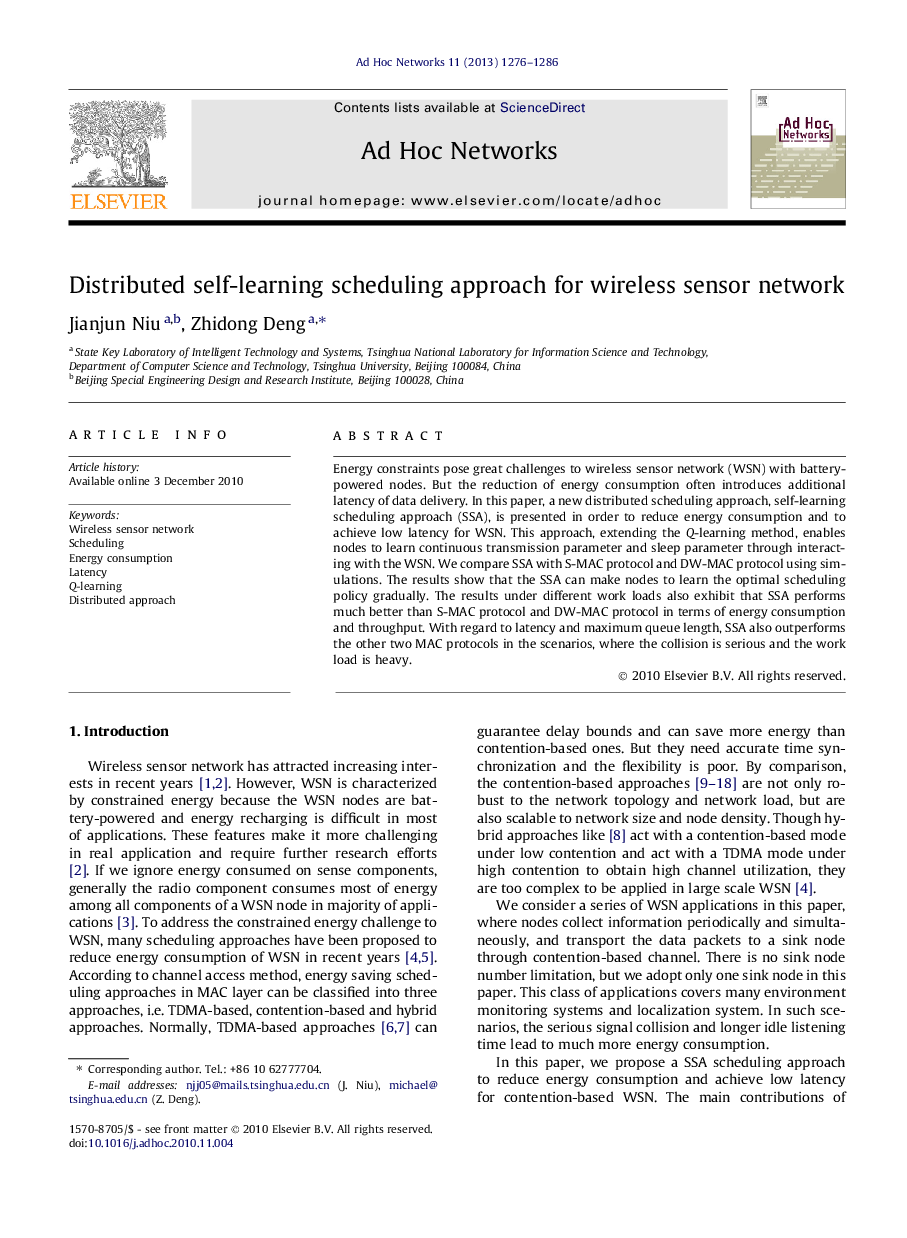| Article ID | Journal | Published Year | Pages | File Type |
|---|---|---|---|---|
| 444536 | Ad Hoc Networks | 2013 | 11 Pages |
Energy constraints pose great challenges to wireless sensor network (WSN) with battery-powered nodes. But the reduction of energy consumption often introduces additional latency of data delivery. In this paper, a new distributed scheduling approach, self-learning scheduling approach (SSA), is presented in order to reduce energy consumption and to achieve low latency for WSN. This approach, extending the Q-learning method, enables nodes to learn continuous transmission parameter and sleep parameter through interacting with the WSN. We compare SSA with S-MAC protocol and DW-MAC protocol using simulations. The results show that the SSA can make nodes to learn the optimal scheduling policy gradually. The results under different work loads also exhibit that SSA performs much better than S-MAC protocol and DW-MAC protocol in terms of energy consumption and throughput. With regard to latency and maximum queue length, SSA also outperforms the other two MAC protocols in the scenarios, where the collision is serious and the work load is heavy.
